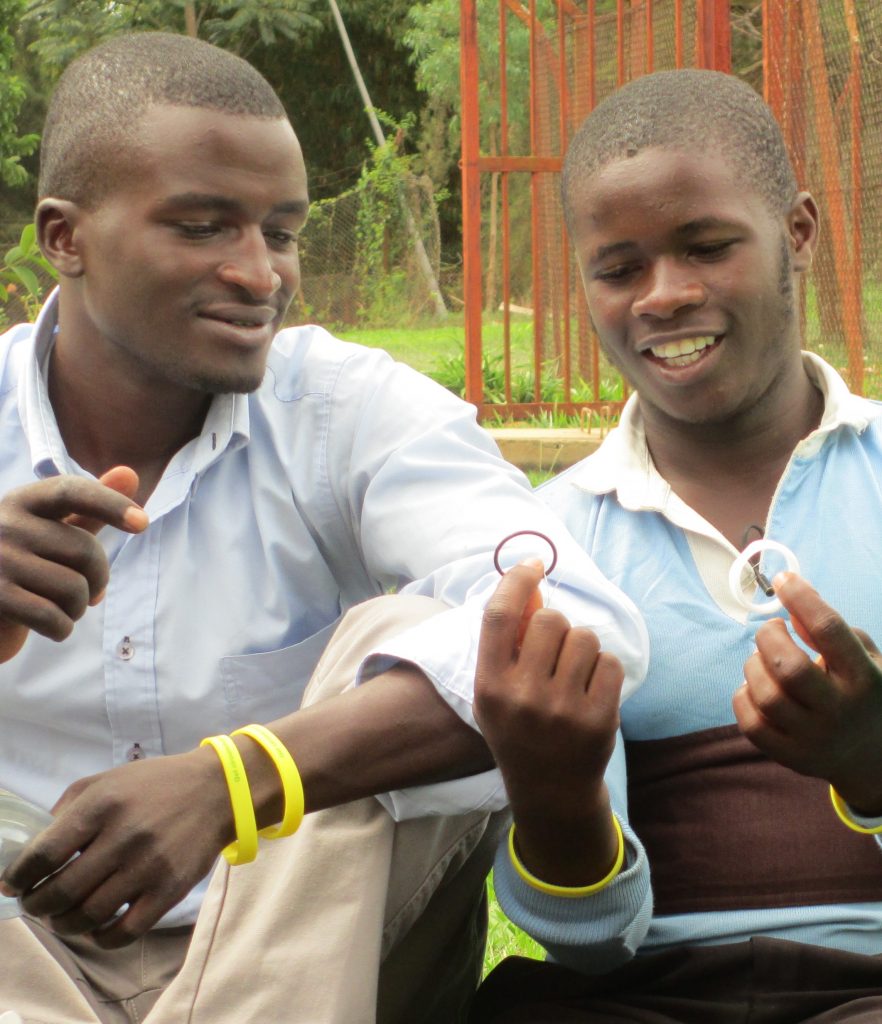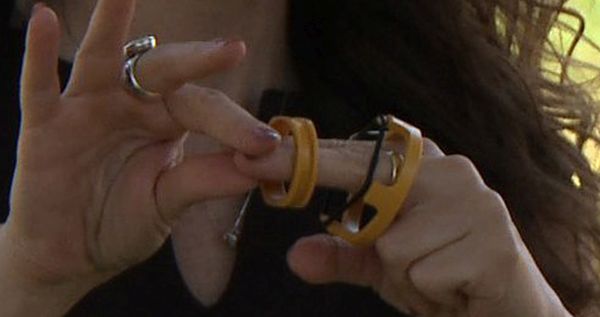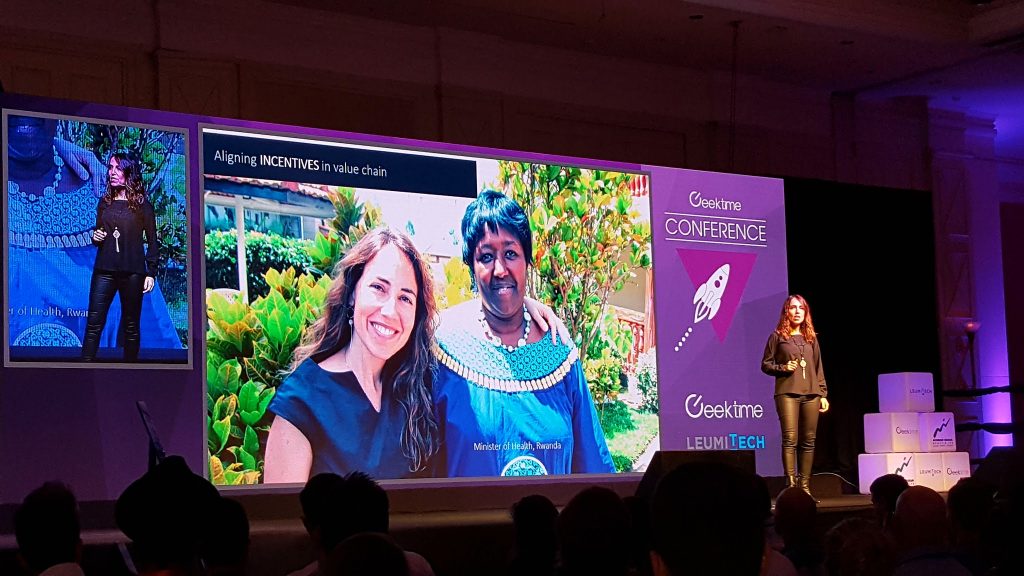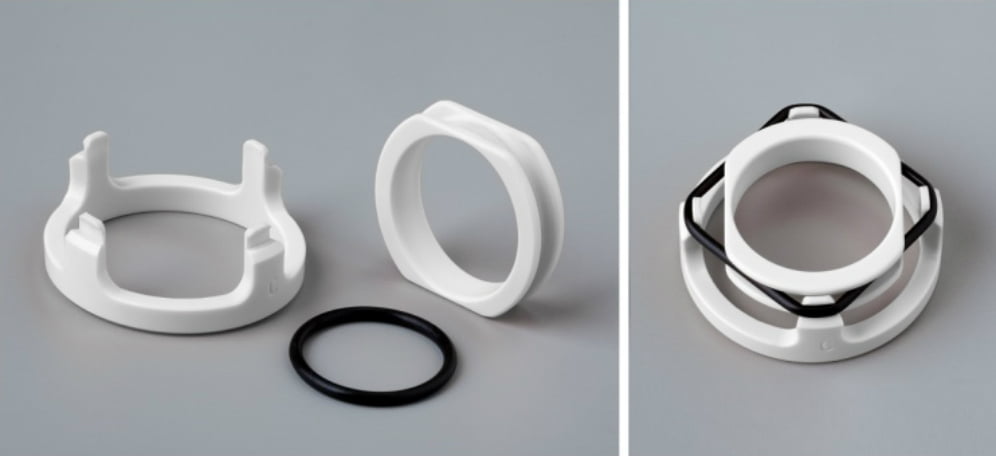More than two-thirds of all people living with HIV, some 24.7 million in total, live in sub-Saharan Africa, according to amfAR, The Foundation for AIDS Research.
According to the World Health Organization (WHO), one of the benefits of circumcision, the removal of the foreskin of the penis, is a lower risk of HIV transmission. “There is compelling evidence that male circumcision reduces the risk of heterosexually acquired HIV infection in men by approximately 60 percent,” the WHO states.
Last week, Israeli-American entrepreneur Tzameret Fuerst, the former CEO of Circ MedTech, the developer of PrePex, a non-surgical circumcision device, addressed the ninth annual Geektime Tech Conference in Tel Aviv. PrePex, the first medical device in Israel’s history to be approved by the WHO, allows for the performing of circumcisions on a mass scale, with no incisions, bleeding, or injected anesthesia.
PrePex has already been used in more than 250,000 procedures in 13 countries in Africa and Asia. In total, the company has delivered more than 1 million devices which, according to mathematical models, would prevent approximately 150,000 new HIV cases. In addition, there are currently over 1,000 PrePex trained healthcare providers, 16 PrePex training centers and the company is collaborating with more than 45 NGOs on the ground.
SEE ALSO: Israeli Doctors Teach Male Circumcision To African Doctors To Combat Aids
The circumcision procedure, which usually happens when a boy is a baby (although some brave men opt for it in adulthood) is also practiced in Judaism and Islam as a religious ritual. Circumcision is widespread in the U.S., and according to a recent review by the Mayo Clinic, 77 percent of male babies born in hospitals are later circumcised.
However, until very recently, circumcision has not been widely practiced in sub-Saharan Africa due to the relatively high cost of the procedure, the need for a sterile environment and medical expertise – and the understandable reluctance of patients to undergo such a delicate procedure.
Enter PrePex, an ideal cost-effective circmucision device staring at just $12 per unit. A non-reusable device, with PrePex circumcisions can be carried out by lower-level medical professionals and nurses (a fact that is crucial in countries like Rwanda, which has just over 300 doctors treating a population of over 11 million) and does not require the sterile environment of an operating room.
A simple device
The PrePex device is made up of two rings and a special rubber strap. The rubber strap’s purpose is to cut circulation to the foreskin. The foreskin decays and falls off within a week, then the device is removed and the procedure ends.
At the conference, Fuerst explained how the company developed the product in 2009, after the WHO reported that circumcizing adult males can reduce the spread of HIV by 60 percent. A later study further explained that adult circumcision reduces bacteria on the penis, and thus the spread of the disease.
PrePex has been acknowledged by African governments as an effective means of scaling-up male circumcision programs and generating demand among men. Zimbabwe’s Ministry of Health and Child Care recently included the PrePex device as an integral part of its national VMMC Action Plan with a target of circumcising 1.3 million men by 2018. South Africa and Uganda are in advanced stages of PrePex implementation, and have each set a goal of reaching more than four million men with male circumcision services. Other countries – such as Botswana, Kenya, Malawi, Zambia, Tanzania, Lesotho and Swaziland – are in varying phases of PrePex implementation.
Circumcising Rwanda
Sign up for our free weekly newsletter
SubscribeRwanda is a country of over 11 million people of which three percent is HIV positive. In Rwanda, the Ministry of Health aims to circumcise 800,000 men by 2016, through a massive PrePex rollout. Fuerst traveled to Rwanda to oversee the procedure herself and held a joint press conference with the Rwandan Health Minister as well.
SEE ALSO: Breakthrough Israeli Device Will Circumcise 700,000 Rwandans To Prevent HIV/AIDS
“Circumcision is the most efficient tool to fight HIV/AIDS,” Rwanda Health Minister Doctor Agnes Binagwaho told the BBC.
“We are proud to demonstrate our commitment towards an AIDS-free generation together with our partners in the HIV/AIDS prevention field,” Circ MedTech’s CEO Eddy Horowitz said in a statement. “Through this initiative we can prevent transmission of diseases, reduce costs to public health systems and save countless lives.”
Currently available for ages 13 and up
The company says that the PrePex device is currently available for adult males and also for adolescent boys age 13 and above.
As for males under the age of 13, Circ MedTech Ltd. has received the CE Mark for the use of its PrePex Infant and PrePex Child devices, which will extend the range of safe male circumcision services to all ages worldwide. Clinical studies on the newly-developed PrePex sizes have resulted in positive outcomes and the devices for males under the age of 13 will be available in the near future.
“PrePex provides an easier, more convenient and cost-effective way of conducting male circumcision, both for patients and for healthcare providers,” Horowitz said in a statement. “With our introduction of the non-surgical device for infants and children, PrePex will improve the male circumcision experience for men, boys and infants worldwide.”
International recognition
PrePex has been acknowledged by African Ministers of Health, the Executive Director of UNAIDS, US government officials and many others. The company has also won several awards as well. PrePex received the Gold Innovation Lions Award at the 2016 Cannes International Festival of Creativity; Laureate of the 2015 Tech Awards; and the GBH Health 2012 Business Action on Health Award. Also, it was just announced that Frost & Sullivan has recognized Circ MedTech Ltd. with the 2016 Sub-Saharan Africa (SSA) Frost & Sullivan Award for New Product Innovation.
One of the many impressive endorsements came from none other than Microsoft Founder Bill Gates. In his 2012 Annual Letter, published on the Bill & Melinda Gates Foundation website, he wrote: “Even in the ancient practice of circumcision, innovation has the potential to make a big difference. The new PrePex devices simplify the procedure and make surgery unnecessary. The first studies suggest that these devices are both safe and effective.”
Photos and Video: PrePex, Hoff Reshef
Related posts

Israeli Medical Technologies That Could Change The World

Harnessing Our Own Bodies For Side Effect-Free Weight Loss

Missing Protein Could Unlock Treatment For Aggressive Lung Cancer







Facebook comments